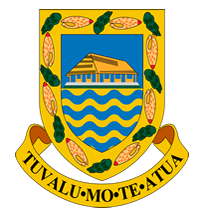Tuvalu: Government
Key Figures
- Chief of State:
- King Charles III represented by Governor General Tofiga Vaevalu Falani
- Head of Government:
- Prime Minister Feleti Penitala Teo
Overview
- Government Name:
- Tuvalu
- Constitution:
- Adopted: 1978; Establishes Tuvalu as a constitutional monarchy with a parliamentary democracy and dictates the structure of government in terms of the sovereign, head of state, and parliament.
- Government Type:
- Parliamentary Democracy

Index of Economic Freedom
Country Risk Rating
Government Branches
| Main Powers | Election Process | Election Cycle 1 | |
|---|---|---|---|
| Executive | Governor-General represents the king and is head of state, appoints cabinet on advice from prime minister. Prime Minister is in charge of executory tasks of the government, advises monarch on governor-general. |
Governor General is appointed by parliament and prime minister is elected by parliament. |
Governor general: Until dismissal by parliament; Prime Minister: Until dismissal by Governor-General |
| Judicial | High Court of Tuvalu is independent of the government and the supreme court of the land having unlimited jurisdiction. |
Chief Justice of High Court is appointed from a different Commonwealth country. |
Until resignation |
| Legislative | Parliament of Tuvalu (Palamene o Tuvalu) elects prime minister, in charge of creating legislature, policies & budgets. |
Parliament (Fale I Fono) members are elected by plurality vote in multi-member constituencies. |
4 years |
Regional Trade Blocs
No Regional Trade BlocsInternational Organization Participation [2]
Environmental Agreements [3]
Tax Information [2]
- Tax Authority:
- Information not available
- Tax Name:
- Information not available
Sources:
- ElectionGuide http://www.electionguide.org/
- EY, http://www.ey.com
- CIA World Factbook, https://www.cia.gov/the-world-factbook/
- U.S. Bilateral Relations Fact Sheets http://www.state.gov/r/pa/ei/bgn/


